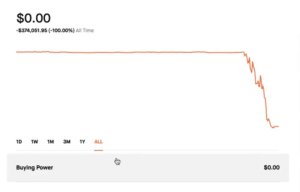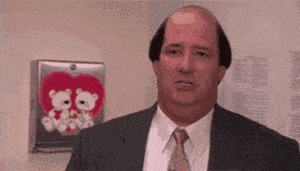Every year I get together with a few friends to watch the Academy Awards broadcast, more popularly known as the Oscars. Yes, I realize that we’re some of the only people left on Earth who still like to watch all of the nominated movies and care about the awards show. In 2021, viewership of the broadcast hit an all-time low with only 10.4 million viewers, which pales in comparison to the heyday of the Oscars when 55.3 million people watched in 1998.

That said, the show this year did get a 56% increase in viewers from last year—partly due to the fact that there were better movies in 2021 with COVID restrictions loosening, and partly due to a little kerfuffle between Will Smith and Chris Rock that went viral.
For those who are blissfully unaware, in the middle of presenting the nominees for Best Documentary Feature, Chris Rock made a G.I. Jane joke about Jada Smith’s (Will Smith’s wife) shaved head. Seeing that Jada was irked by the joke, Will Smith strode up on stage and slapped Chris Rock in the face then screamed at him “Keep my wife’s name out your #$@&%* mouth!”. It was the most bizarre, surreal, and wild moment in Oscars history.
I’m assuming almost everyone has already seen the video, but I’m posting it here for posterity:
*NSFW Warning: Watch the uncensored moment Will Smith smacks Chris Rock on stage at the Oscars, drops F-bomb
On live TV in front of millions of people, one of the most famous actors of his generation slapped one of the most famous comedians of all time. What makes the situation even crazier is that all this happened a mere 30 minutes before Smith won his first-ever Best Actor award for his role in King Richard.
On what was supposed to be one of the best nights of Will Smith’s life, the culmination of an awesome 30-year acting career, he overshadowed his own celebration with his emotional, violent retaliation to a joke made in poor taste.
Will Smith has been known as one of the nicest guys in Hollywood. Was there anyone in the world who didn’t like Will Smith before this happened? He had built up 30 years’ worth of goodwill and admiration from the public only to have his solid reputation tarnished by this one 60-second incident. He’ll be remembered for this forever.

After watching, it struck me (much like Smith’s hand to Rock’s face) that this same lesson can be applied to building wealth. A lot of good financial decisions repeated over many years to build wealth, can be destroyed by one bad decision.
A few months ago, I wrote about a guy who had built a solid financial foundation for himself by making smart financial decisions, consistently investing in his 401(k), and over the course of a few years had accumulated nearly $400,000 in liquid assets.
Then, he became bored with slowly building wealth through consistent saving and investing so he decided to take his entire savings and buy call options tied to Alibaba. Here’s the result of the trade:

With one poor decision, he wiped out years of financial growth.
One of my all-time favorite quotes from Warren Buffet is:
“Never risk what you have for something you don’t need.”
Financial mistakes like this can happen to anyone. Whether it’s making an ill-timed investment, taking on too much leverage, being too concentrated in one investment, investing money you can’t afford to lose, or not having the appropriate amount of insurance coverage. It’s shocking how fast a misstep can erase years of progress.

Insurance plays a major role in ensuring that single events don’t wreck your financial situation. Yes, health insurance premiums can be very expensive and are never fun to pay, but most people can afford to fit them in their budget. What you can’t afford is a serious, ongoing medical issue that will wipe out a lifetime of financial growth without it.
Growth is driven by compounding, which always takes time. Destruction is driven by single points of failure, which can happen in seconds.
That’s why good investing isn’t necessarily about making good decisions, it’s about consistently not screwing up. Average returns sustained for an above-average period of time lead to extraordinary returns. Most people can afford to not be a great investor, but you can’t afford to be a bad one.
Thanks for reading!

